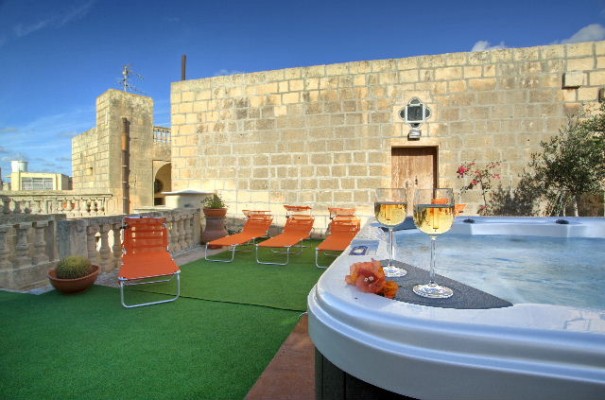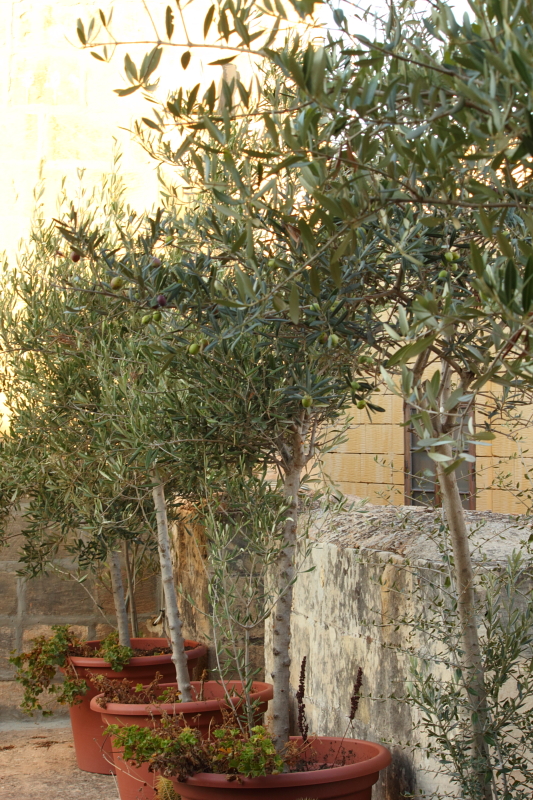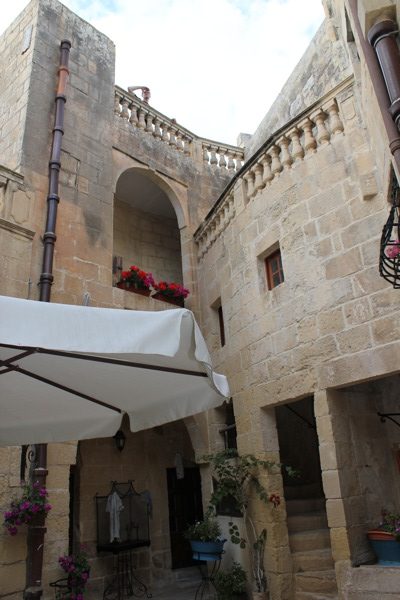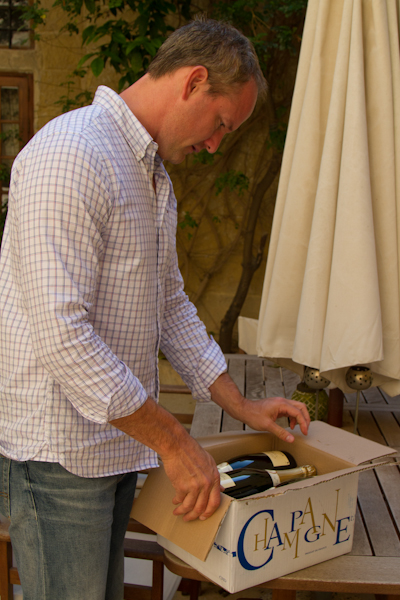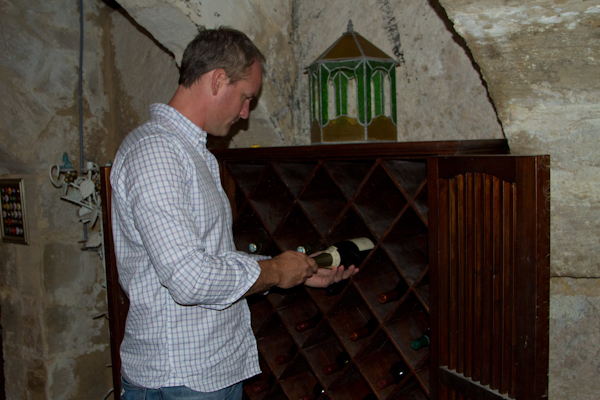Nighttime in the palazzo held its own magic. We often took a nightcap in the living room, after the day’s work and reading was done: gin to slake the summer heat, or a winter whiskey to drive the damp from our bones.
I liked to take my glass up to the roof at those times — down that cavernous arched hallway and up the stone steps towards the half-room which led to my study. I would turn at the landing and shoot the bolt on a wooden door that led outside, up another flight of steps to the roof.
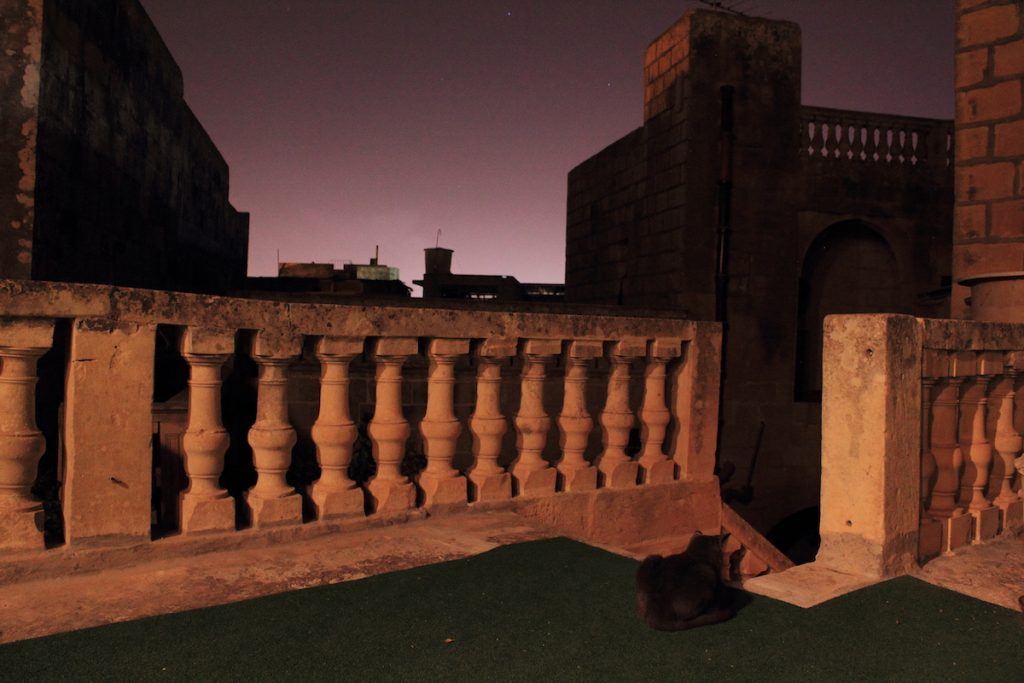
That front roof had a sitting area with a cluster of wicker chairs and a table, where a row of olive trees in pots offered a thin screen of privacy from the houses across the alley.
I paused at that point to look back at the empty tower rooms across the courtyard, and then I would carry my glass to the stone balcony that projected over the front door, looking down on silent alleys and streets.
The front wall was four feet thick, and had been finished on top with a coating of rough lime and rubble that pressed the stones together and sealed them from the winter rains. It was a style of building used before the time of the Knights, which meant those walls dated back to the late 16th or early 17th Century. Our palazzo was over 400 years old.
The two connected rooms that I called ‘the tower’ were my favourite place to dream in. They sat high up and separate from the rest of the house, overlooking the courtyard. It would have been a perfect self-contained world to me as a child.
I would furnish it as a small apartment or a monastic cell: the first room with a desk and comfortable sofa, with bookcases and a lamp for reading, and the inner room with a big bed placed directly in front of those tall wooden windows that opened onto the landing and the courtyard below.
I often sat there on the edge of the bed, inhaling the gentle scent of the stone and imagining my childhood transplanted to those two peaceful rooms. I could lose an hour like that.
A narrow wooden door opened off the landing, where a toilet shared its small space with a stairway as wide as my shoulders. The Maltese call these tightly wound steps “il-garigor”. It spiralled upwards around a central core of stone and led to the tallest roof of the house, with views halfway across the island to the lights of the ancient capital of Mdina.
My thoughts would drift back to what I’d come to remember as our Poverty Years. Those years after university when I was unemployable, rejected at every turn, and down to my last $10 more than once.
I worked for temp agencies at government offices in Ottawa, and on my lunch breaks and in the evenings I read and worked on my first book. A bottle of wine in those days was a rarity. I always chose something I wanted to drink, rather than skimping to buy two or three.
I envied the diplomats and restaurant owners who walked through the LCBO with their carts. I vowed that one day I would have enough money to do two things: to buy a plane ticket anywhere I wanted, at any time, and to walk through the liquor store with a cart and buy whatever we wanted to drink without worrying about the price. But a life like that felt so far away.
Moving to Malta was an antidote to those years. I knew this new phase wouldn’t last, but living in that enormous old house felt like a vindication.
From afar, our life must have looked so exotic, a steady stream of trips, expeditions, exhibit openings and parties, all set against the backdrop of a palazzo on an island in the Mediterranean, a place so remote that few could identify it as a country, and even fewer locate it on a map.
Of course, much of this was an illusion. Our modest income went farther on an island off the edge of North Africa, and so, for a while, we could experience how the other half lived.
But if you want to know the truth, none of those luxuries brought more happiness. The world we inhabited would turn out to be just as artificial as my conception of the island, but we could not have foreseen it at the time.
